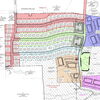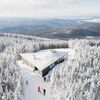Processing Your Payment
Please do not leave this page until complete. This can take a few moments.
- News
-
Editions
-
- Lists
-
Viewpoints
-
Our Events
-
Event Info
- Women's Leadership Forum 2025
- On the Road with Mainebiz in Bethel
- Health Care Forum 2025
- On The Road with Mainebiz in Greenville
- On The Road with Mainebiz in Waterville
- Small Business Forum 2025
- Outstanding Women in Business Reception 2025
- On The Road with Mainebiz in Bath
- 60 Ideas in 60 Minutes Portland 2025
- 40 Under 40 Awards Reception 2025
- On The Road with Mainebiz in Lewiston / Auburn
- 60 Ideas in 60 Minutes Bangor 2025
Award Honorees
- 2025 Business Leaders of the Year
- 2024 Women to Watch Honorees
- 2024 Business Leaders of the Year
- 2023 NextUp: 40 Under 40 Honorees
- 2023 Women to Watch Honorees
- 2023 Business Leaders of the Year
- 2022 NextUp: 40 Under 40 Honorees
- 2022 Women to Watch Honorees
- 2022 Business Leaders of the Year
-
-
Calendar
-
Biz Marketplace
- News
- Editions
- Lists
- Viewpoints
-
Our Events
Event Info
- View all Events
- Women's Leadership Forum 2025
- On the Road with Mainebiz in Bethel
- Health Care Forum 2025
- On The Road with Mainebiz in Greenville
- On The Road with Mainebiz in Waterville
- + More
Award Honorees
- 2025 Business Leaders of the Year
- 2024 Women to Watch Honorees
- 2024 Business Leaders of the Year
- 2023 NextUp: 40 Under 40 Honorees
- 2023 Women to Watch Honorees
- 2023 Business Leaders of the Year
- + More
- 2022 NextUp: 40 Under 40 Honorees
- 2022 Women to Watch Honorees
- 2022 Business Leaders of the Year
- Nomination Forms
- Calendar
- Biz Marketplace
Haystack's new director looks at a future of inclusion
 Photo / Laurie Schreiber
Paul Sacaridiz, the new director of the Haystack Mountain School of Crafts on Deer Isle, says the school is working toward becoming more inclusive in its programs.
Photo / Laurie Schreiber
Paul Sacaridiz, the new director of the Haystack Mountain School of Crafts on Deer Isle, says the school is working toward becoming more inclusive in its programs.
Paul Sacaridiz stepped in as Haystack Mountain School of Crafts' fourth director last September, following the retirement of Stuart Kestenbaum, who served as director for 27 years. The Brooklyn, N.Y.-born Sacaridiz was previously a professor and chair of the art department at the University of Wisconsin-Madison.
Sacaridiz was both a student and later a teacher at Haystack, a nonprofit offering intensive studio-based summer workshops, conferences and symposia to craftmakers and visual artists. Situated on 40 acres atop a granite hillside, the Deer Isle campus overlooks Jericho Bay. Mainebiz talked with Sacaridiz at the Haystack campus. An edited transcript follows:
Mainebiz: How did you arrive at this position?
Paul Sacaridiz: I've always worn two hats. I've taught studio art courses, but I was also the person who looked forward to faculty meetings and knowing what the budgets were. I've also worked with not-for-profit boards, most recently the National Council on Education for the Ceramic Arts. A few years ago, I coordinated a large conference for the organization in Milwaukee and was about to become the president when I learned [Kestenbaum] was stepping down as director. I realized this was the perfect match for what was most important to me. So I made a pretty dramatic left turn from being a tenured professor at a large research university to taking on the role of executive director of a not-for-profit. I wanted a smaller-scale organization with an intimate working relationship. I also wanted to be involved in an organization that reaches many demographics. We draw people nationally and internationally and we have programs for Maine residents.
MB: What's the draw for them?
PS: There are few craft schools like ours. The story of the American craft movement, in many ways, can be told through the history of Haystack and our peer schools. People come because they are aware of that history and drawn to our unique location. In many ways, our remoteness is our greatest asset. By the time people arrive, they've shed layers of their day-to-day lives.
MB: How much does it cost to run Haystack and where's the money from?
PS: We have an $8 million endowment. Our annual budget of about $2 million comes from room, board and tuition, grants and our annual appeal. Some donors have a connection to Haystack that reaches back to our founding in 1950.
MB: What are some strategies for keeping up with inflation and upkeep?
PS: Maintaining the campus is one of our largest priorities. There probably isn't a piece of wood that hasn't been replaced once or twice. Generating and maintaining scholarship support for students is also critically important. We have many named funds that help make this possible. Whenever we increase fees we do so carefully, with the oversight and guidance of our board, to ensure the school remains accessible. We also have an efficient staffing model, with a smaller core of full-time year-round staff in comparison with our seasonal staff. And we're always engaged in grant-writing and have been successful in receiving support for our most pressing needs, allowing us to operate without substantial annual increases to operating expenses. I'm fortunate to walk into an organization that's been exceedingly well-run and healthier than it's ever been.
MB: What do you see for upcoming initiatives?
PS: We've spent a lot of time looking at the outsides of our buildings, and we'll start to shift to looking at the insides, both equipment and upgrades. We need to make sure the facilities and equipment are up-to-date, but doing so in a way that reflects our mission. One of the biggest pushes right now is inclusion. We need to make sure the school echoes the larger world. As a school inviting people in, I think we've done a really good job historically. But I think we can't let up on that work. We're at a moment where this is part of the national conversation, and I want to make sure we're asking those challenging questions here as well.










Comments